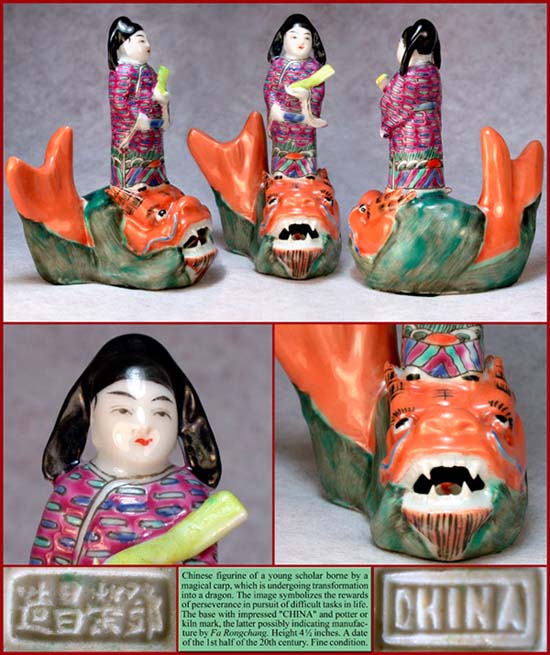Posted By: Bill H
Posted Date: Jan 18, 2018 (02:24 AM)
Millions of carp swim upstream in rivers annually to spawn, most of them stopping their journey below the fall line, intimidated by the rapids and waterfalls that lie ahead. The parable of the Dragon Carp holds that on rare occasion there appears in the midst of these throngs a singular carp with the character and sheer determination to make it past the rapids and to the base of the waterfall, where it summons all of its strengths in a literal leap of faith that takes it up and over the crest of the fall, whereupon it undergoes metamorphosis into a dragon.
This parable was told and retold to children in ancient and many contemporary Chinese homes, I'm sure, by way of ingraining in them how a good education would facilitate their transformation to de facto dragons in the future.
In ancient times, the path to becoming a dragon was through the Examination System, which in its highest expression, led China's best and brightest students to and through the Hanlin Academy in Beijing to become scholar-bureaucrats in the Imperial Service. The Hanlin Academy existed in China for a thousand years, from the Tang Dynasty until the boxer Rebellion of 1900, when a fire blamed by some on advancing foreign forces destroyed most of the academy, including a library of woodblock books with more volumes than were thought to have been contained in the fabled library at Alexandria in Egypt. The historical examination system was abolished in 1905, three years before the Qing Dynasty ended.
A great deal of iconography is associated with the dragon carp. I include images with examples, including a small pedestal dish featuring Kuixing, the God of Examinations and an associate of the God of Literature, who is shown as if dancing above a Dragon Carp, while holding a scholar's cap and brush, with an imperial scepter and the Big Dipper (containing Kuixing's star in its handle) in the sky above. The other image shows a small porcelain figurine of a scholar riding on the back of a Dragon Carp. Both items were popular giftware for aspiring Chinese scholars.
I recommend Wikipedia.org for further reading on these topics.
Best regards,
Bill H.


| Note that we are now reviewing postings before posting due to the large volume of SPAM and inappropriate postings on the forum. The validation process may take up to 12 hours. |